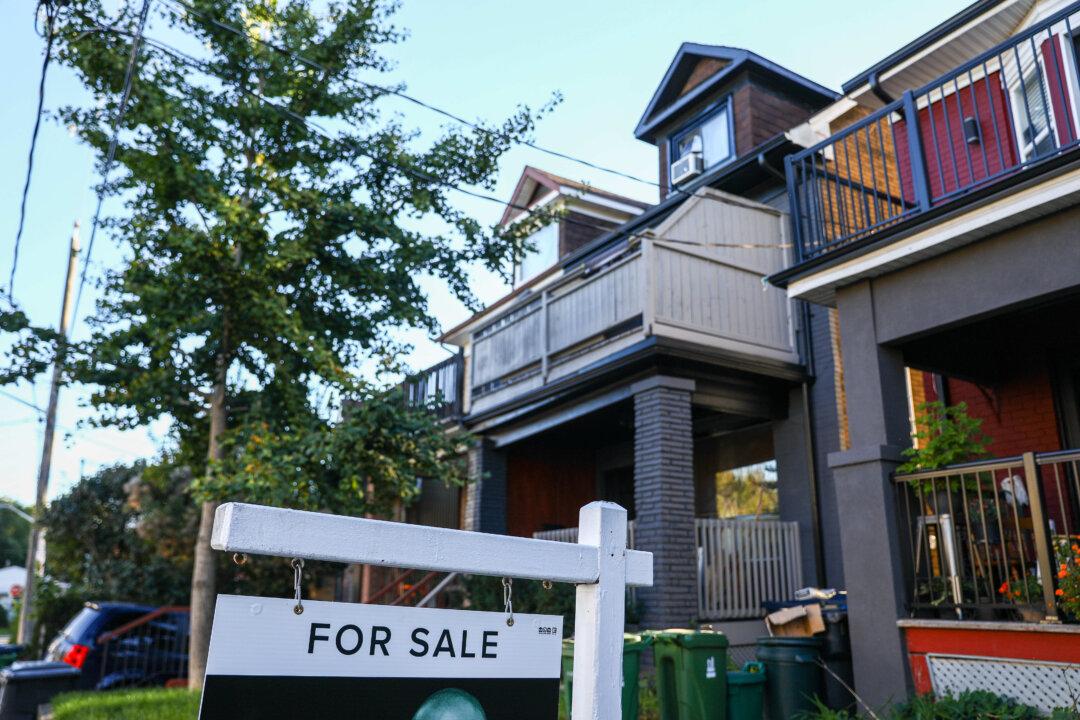Prices of detached and semi-detached homes took the hardest hit in the Greater Toronto Area (GTA) last month as sales across all home types continue to be impacted by increased borrowing costs due to higher interest rates, a new report says.
Released by the Toronto Regional Real Estate Board (TRREB) on Dec. 5, the report said that the average price of detached and semi-detached homes in the GTA in November fell 11.3 percent (to $1.4 million) and 13.9 percent (to $1.04 million), respectively, when compared to the same period last year.





